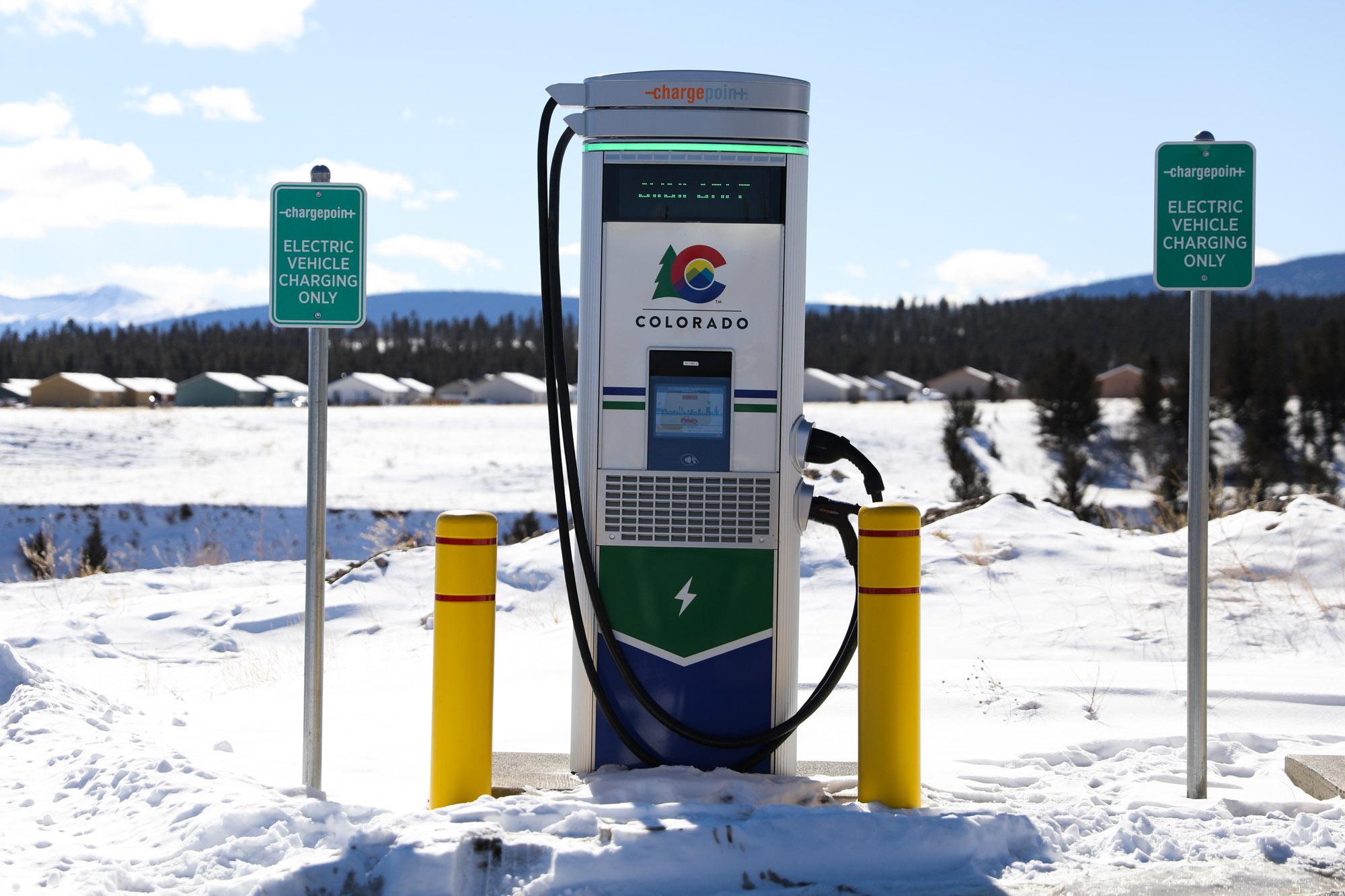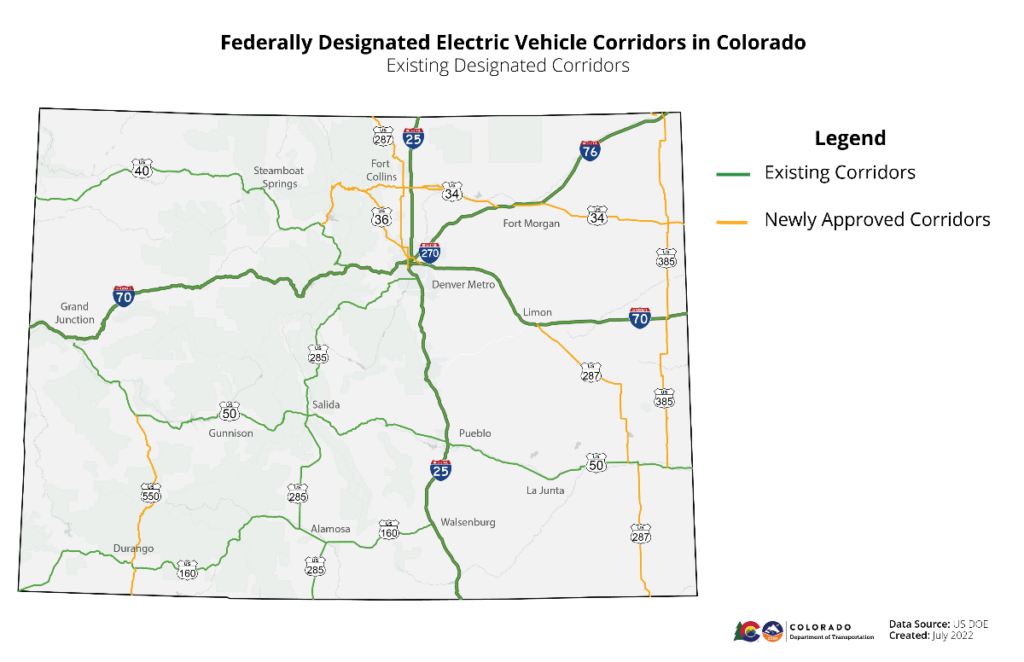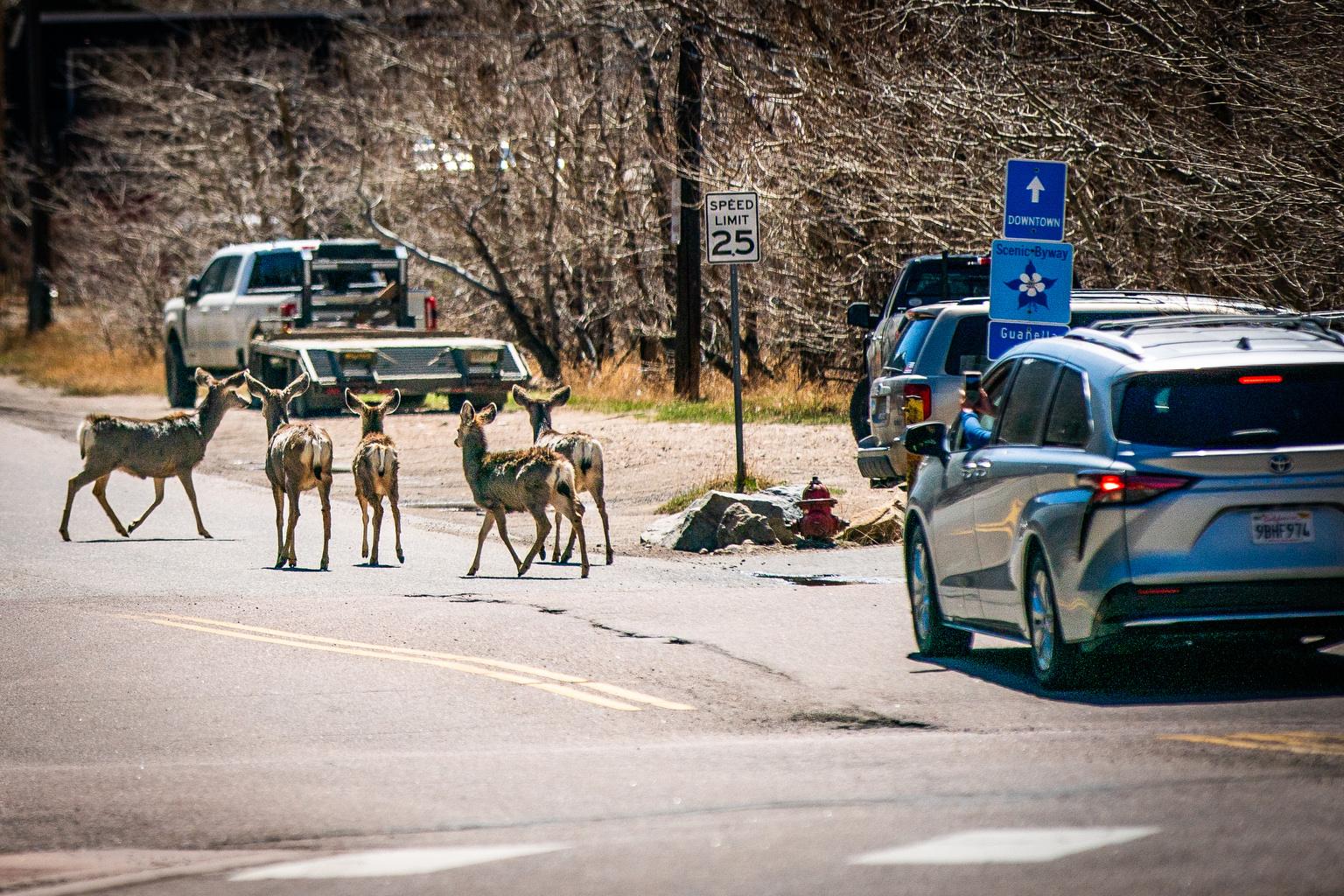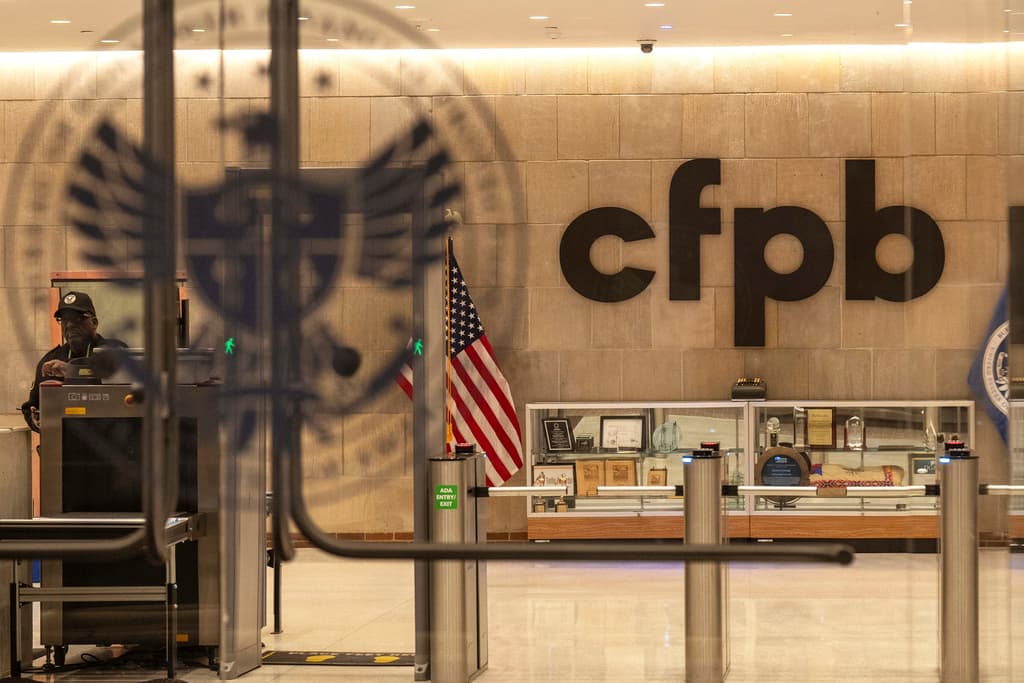
Six highways in Colorado are now approved for federal grant money to increase options for electric vehicle chargers. The funding is part of a project aimed at building out a national EV charging network to connect states and help drivers make longer trips.
Colorado is set to receive $57 million as part of the National Electric Vehicle Infrastructure (NEVI) program over the next five years, according to the Colorado Department of Transportation.
The funds must be used on federally approved highways, and chargers will be built within one mile of the road and no more than 50 miles apart. These corridors will add almost 1,000 miles of NEVI-approved roadway to the state – a 44 percent increase, according to CDOT.
CDOT also said that part of the NEVI funding is aimed at improving infrastructure in more rural parts of the state.

The southeast Colorado town of Lamar sits near two of the newly approved corridors, U.S. Highways 385 and 287, and the existing corridor of U.S. Highway 50. The town’s mayor, Kirk Crespin, said that although he wasn't familiar with this recent funding, Lamar has already been planning for a future with electric vehicles. In May, Lamar installed a Tesla Supercharger just off of Main Street, and Crespin said they put it downtown in part to attract travelers to Lamar’s shops and restaurants.
“We wanted to attract them to take that captured audience while they’re here for 30 minutes to an hour, charging, and let them know about the city of Lamar, and hopefully entice them to come downtown to shop, eat, visit, explore,” he said.
Lamar has the only Supercharger in southeast Colorado other than Trinidad, and Crespin said he'd like to see Lamar become a hub for EV drivers.
Beyond the economic potential, Crespin advocated for the Supercharger to reinforce a charging infrastructure that he believes is lacking. Crespin said he drives a Tesla and the lack of chargers in the area is a significant barrier to others following suit.
“I don’t foresee a quick adoption of electric vehicles in southeast Colorado because of the need for the infrastructure for EV charging,” he said, “and until we get that EV charging infrastructure in place, you won’t see that adoption to electric vehicles happen.”
Tim Hoover, a spokesman with the Colorado Department of Transportation, said that the highways approved under the NEVI program will be a “big shot in the arm” for the proliferation of electric vehicles in Colorado. He also noted that the funding is not focused solely on population centers in the Front Range.
“This funding is really for those areas where there aren’t necessarily higher populations,” he said. “It’s aimed more at building out a state-wide network.”
Crespin called federal funding a blessing for putting charging infrastructure in rural areas. He said it’s a challenge to get companies to build chargers in his part of the state, and that support from the government can go a long way.
The state now has to submit a plan describing how it will use its NEVI funds on the six approved highways, which is due by August 1. The plan is expected to be approved at the end of September.








